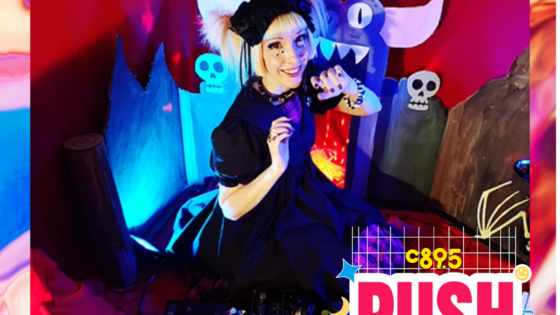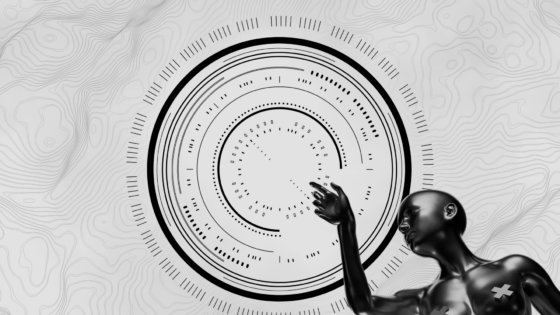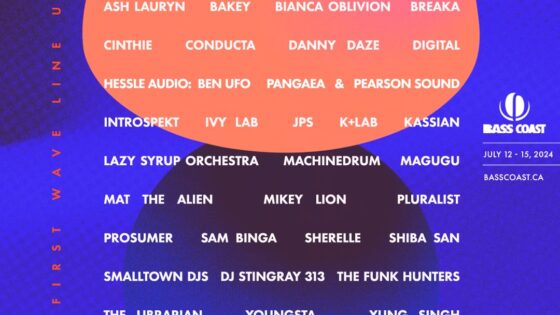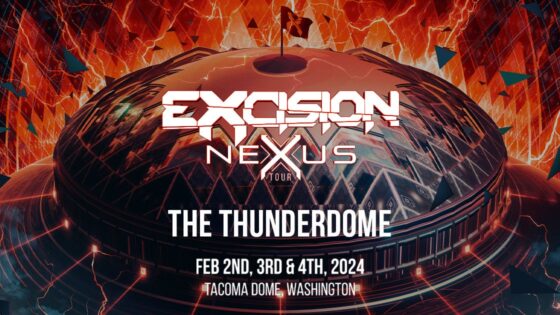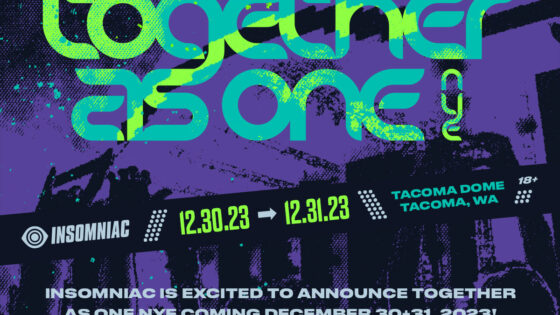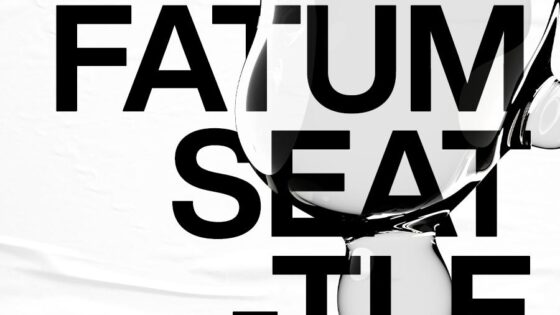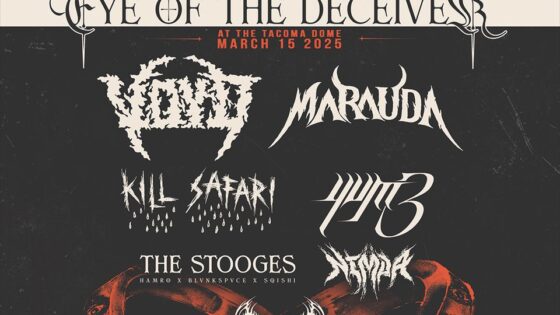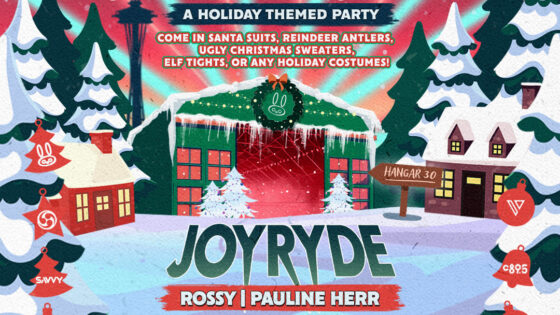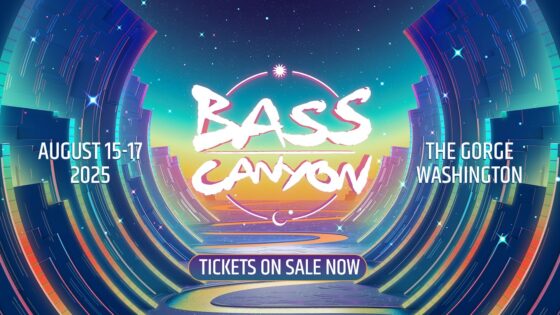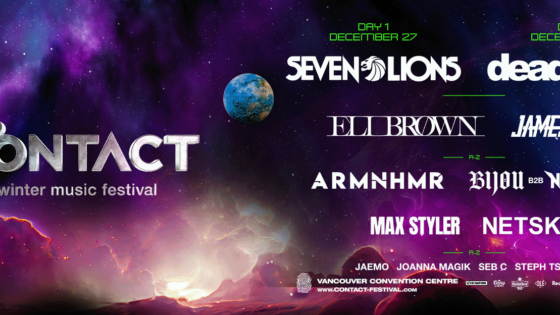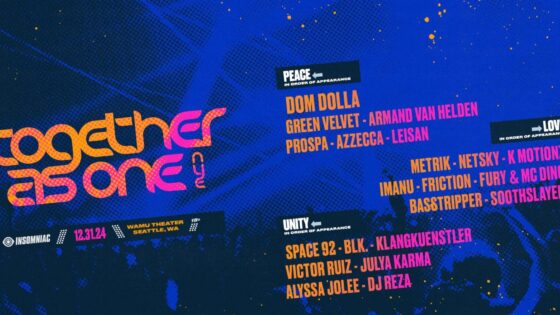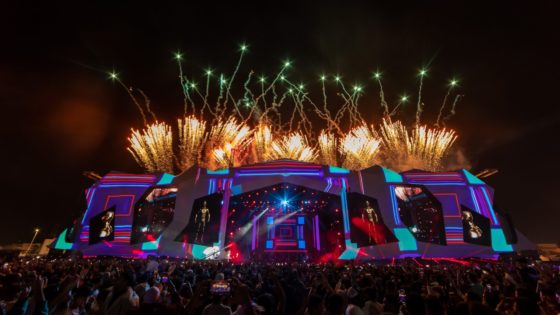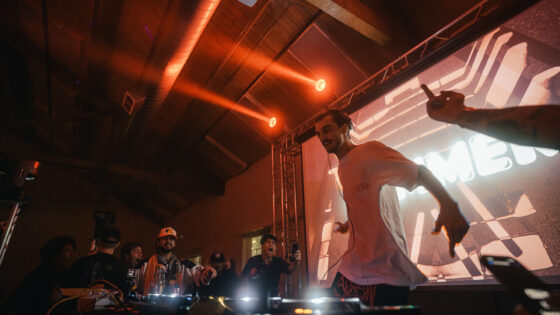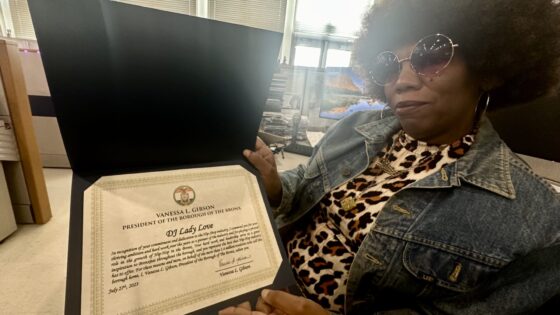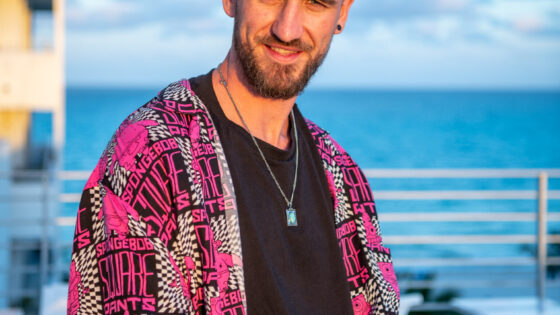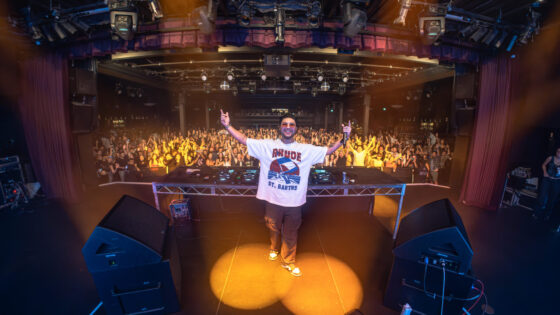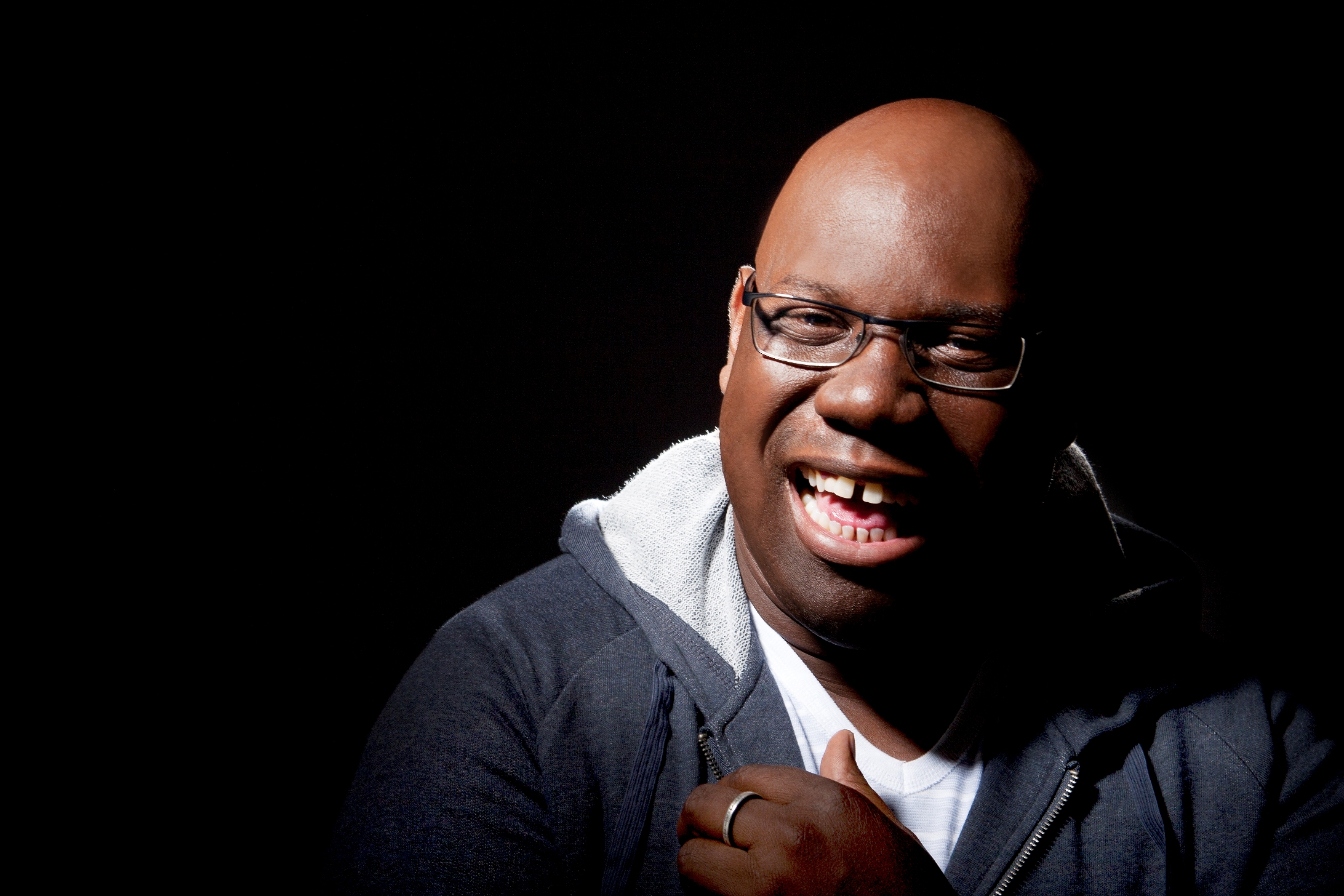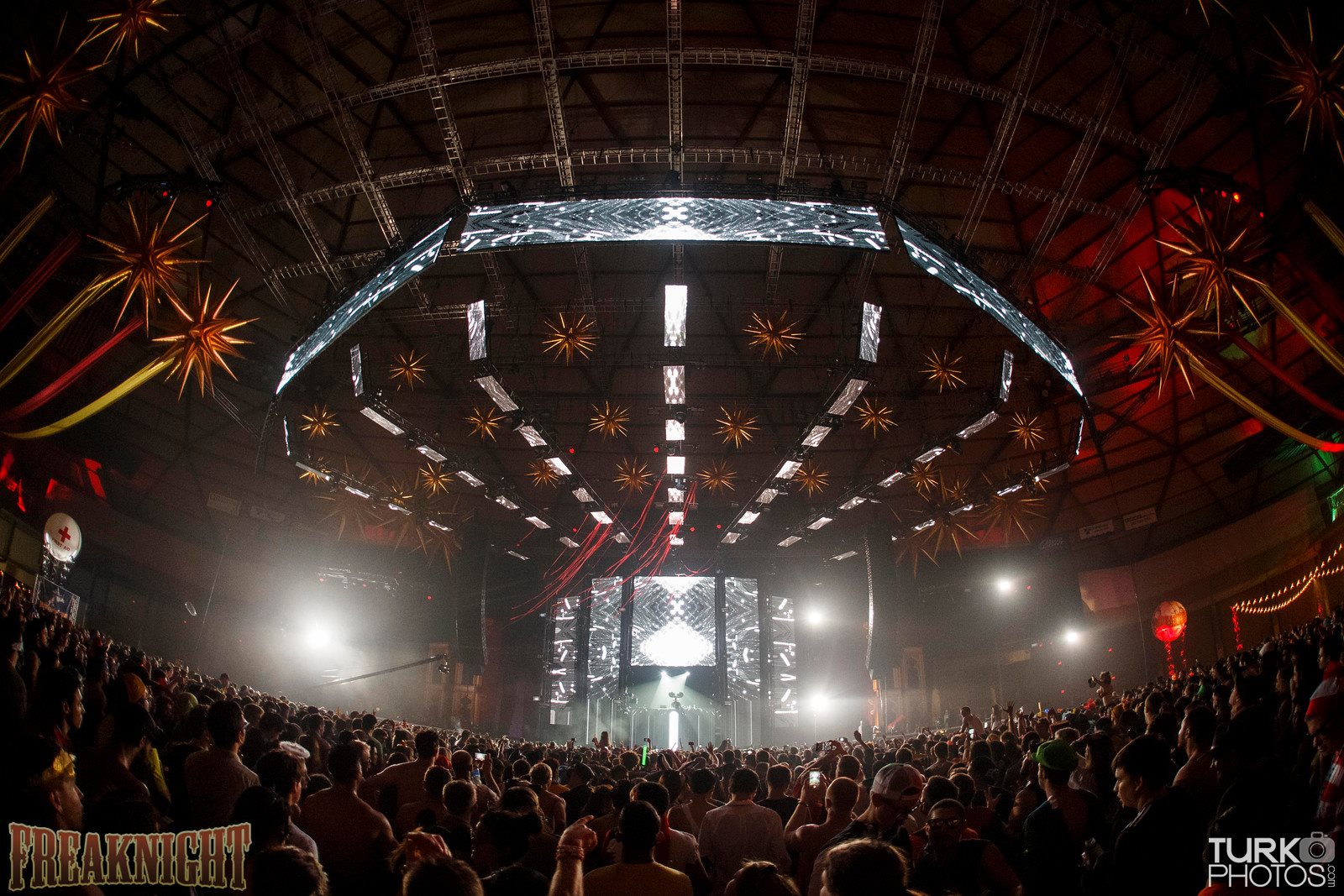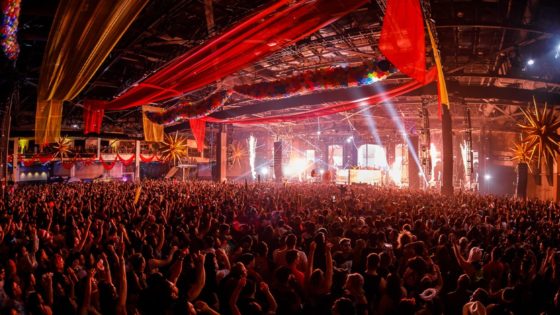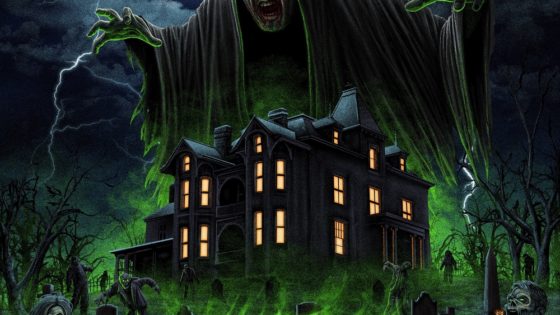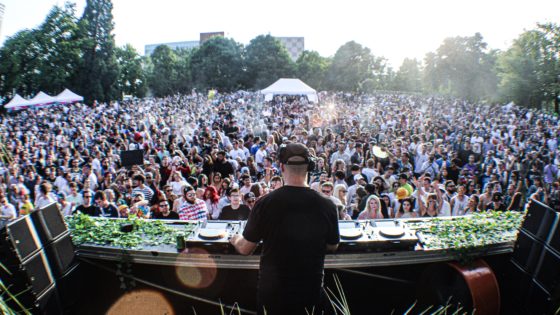Here at Dance Music Northwest, we’re as much fans of the scene as we are journalists. We go to the shows, listen to the music, and take in the experiences. We’re down there in the pit looking up at our favorite DJs taking over the decks as they enrapture a crowd of thousands. As fans, it’s always surreal when we get to talk with these artists, no matter how many dozens of interviews we do.
With Carl Cox, it was just like that, except multiplied by about ten thousand. It’s one thing to see Cox’s million watt smile light up a room from down on the dancefloor. It’s quite another to hear his voice coming out of your phone speaker, answering your questions and laughing along with you. Even as writers, we’re still very much prone to those fan moments where we can hardly believe this is happening. Come Halloween, we’re going to see a complete Carl Cox and Friends takeover at FreakNight, and from that moment we’ll see: This is actually happening. And the man in control of that experience? Who else but the legend himself.
“This is something we control the production of, the sound, the way how it looks, the way how it feels, and what people experience. I don’t want people to walk in and think ‘I know what’s going to happen in this room,’ I want people to walk in and think ‘what’s gonna happen in this room.'” –Carl Cox
It’s insight like this that make Cox a complete and utter can’t-miss any time you have the chance to see him live. But if you’re not convinced by his music, his insights into what dance music needs before it burns out in a blaze of glory will almost assuredly win you over.
[divider]Rehabilitating Dance Music[/divider]
We exist in a scene that’s quickly saturating itself in pop music. EDM has become a fast-growing phenomenon worldwide, and only now are we seeing both the benefits and the disadvantages. On one hand, more and more people are joining us predicated on great music and a loving attitude. But as more come into the fold, the temptation for DJs to produce music that will top charts rather than move souls becomes all too present.
“Most of the new sort of DJs and producers can’t make raw music. What they believe is that they’ll make music for the EDM generation. They have to make music that’ll make Beatport chart’s #1, and if they don’t they get unhappy. The music becomes more and more commercial. This is where you start to become upset with yourself because you’ve put yourself in a hole you cant get out of.”
Having been in dance music himself for almost 30 years, Cox has seen it all. He began in a time when “people made music because they wanted to, against anything to do with commerciality.” This laid the groundwork for the underground of the 90s, which in turn evolved into what we have today: A scene where the best way to get heard by the most people is to sound just like everyone else. But for Cox, that’s not the way it has to be.
Carl speaks of a future where artists need to evolve their own sound, “otherwise (dance music) will burn up on itself.” Despite the potential bleakness of such an outcome, there’s still plenty of hope for the coming days of EDM. It’s merely a question of finding the artists out to move more than record sales.
[divider]Finding That “Something Else”[/divider]
Rehabilitating our scene begins with getting people in the door the right way. Many of us were pulled in by singular moments: that song we heard on the radio that we wanted to learn more about. That one show that came into our lives at the moment when we were at our lowest and brought us back from the brink. That one artist whose music resonated with us on a deep level.
At some point though, hearing the same 12 songs played on the radio and in every set isn’t enough for us anymore. We begin to crave nuance and complexity. Soulfulness and passion. Enter Carl Cox.
“You want to know what it’s all about. You go there, you go to a club, and you want to have a great time. You go to another one, and the DJs play the same records and it’s the same thing. Another one, same DJs, same thing. Eventually, you’re going to want to find something else. And that’s where I come in, because I am something else.”
There’s nothing that quite compares to the experience of walking into a room not knowing who an artist is, and falling in love with the music within minutes. For Carl Cox, there’s no greater thrill than providing that to a generation looking for more out of their music than the same old “build-drop-repeat” formula that’s taken over mainstages everywhere.
As the discussion turned towards one of our favorite food-related metaphors for dance music courtesy of Max Graham, Carl gleefully provided his own insight into what it’s like for someone just discovering EDM. If you weren’t hungry (both for apples and new music) before, you will be very soon.
“You get this puree apple, and you think ‘what does a real apple taste like?’ You crunch into this apple and you’re like ‘ahh that’s amazing.’ And maybe down the line you get apple crumble and you think “wow! apple crumble and ice cream and custard.’ And that apple crumble and custard lasts forever.”
Both apt and delicious, such a comparison provides us with a useful reminder: It’s time to move on from the apple puree and to start making pie. With Cox, we have everything to gain and nothing to lose in doing so, noting that “out of that creativity there’s always some good. If we can’t do that, there’s nothing to follow in our future. We have to have the ‘what happens next.'”
[divider]A Musical Journey & Returning To Basics[/divider]
One thing that Carl Cox seeks to provide over all else is a musical journey. But that journey isn’t always provided to us by the average mainstage, since “no one’s really trying very hard to move the elements of EDM forward because at the moment it’s all great.” Head into the Cox’s stage at FreakNight this weekend though, and you’ll get far more than any mainstage could offer.
The true aim of the Carl Cox stage is “showing you what else is going on out there. You get a beginning, middle, and an end. It’s called a journey. Your night is based on a journey to begin with, so you should end with a journey when you come to the music. It’s how we’ve always told our story.” That journey in turn breeds moments that you couldn’t find anywhere else. It all goes back to that instant in time where you first discovered your love for dance music. We often hear stories of how dance music has changed lives. But those stories are composed of a series of moments we can never forget.
“If a person touches your soul in such a way, and you’ll stay with that person forever; you had a moment with them which relates to where you were at the time. With the ‘EDM’ sound, it’s ‘bang bang bang bang, next.’ With the other side of the coin, there’s so many great moments in that music.”
In order to fully accomplish this on a global scale though, Carl posits that dance music could benefit from a return to basics. Stages have never been bigger and DJs have never been wealthier. As the popularity of EDM has grown, so has the scale by which we take it all in. Production values have ramped up to unimaginable proportions, while multi-million dollar festivals have taken over. While the existence of these festivals isn’t inherently bad, their massive scale has ushered us into an age where the music has become secondary to the money.
We have ourselves a scene where “you can’t have any more light shows. You can’t have a 400 foot stage now. If you go to Electric Daisy Carnival, that’s a 200 foot stage! The DJ is 5 foot 11 shaped like a pencil, and then you have this humongous stage and you think ‘my god, even if you had the full band of U2 you couldn’t fill this whole stage.” From that, we’ve reached a breaking point, that will in turn return us right back where we belong.
“It’s gone as far as it possibly can go. Anything at the top has to come down. At the end of the day we’ll get to a point where none of this becomes necessary anymore and all we’re going to be thinking about is the music.”
Someone like Cox who’s “always come from the dance floor first,” shows us just how important it is that the music be what drives our experiences. These experiences in turn become what we remember 5, 10, and even 20 years from now. In the end, it all comes down to remembering why we fell in love with dance music to begin with. Carl Cox reminds of just that with his infectious energy and passion, painting a vivid picture of just what we need to thrive in the coming years. Now it’s up to us to join him on the journey.
Important things happen in Pacific Northwest nightlife, and DMNW will send you alerts!




